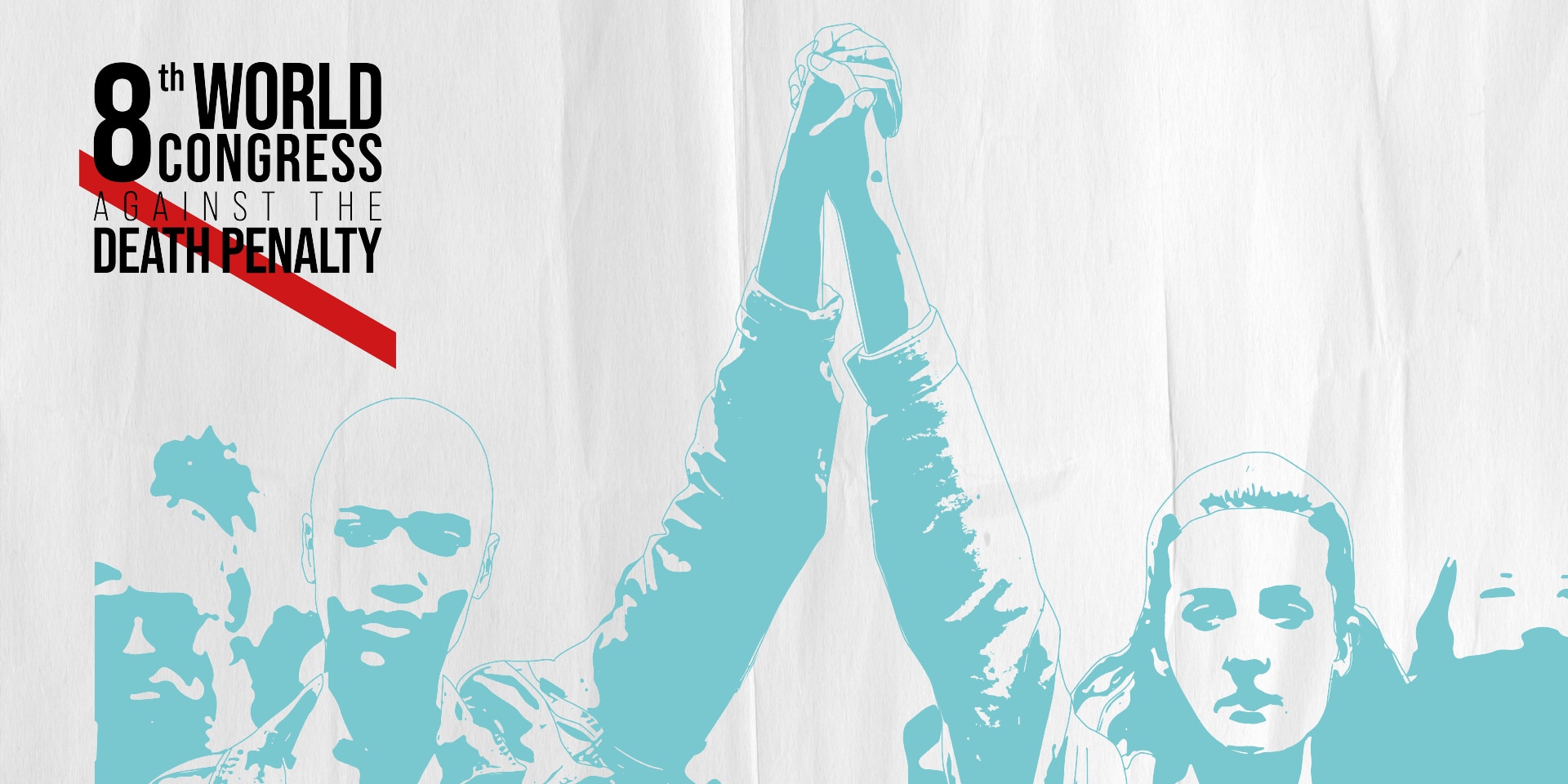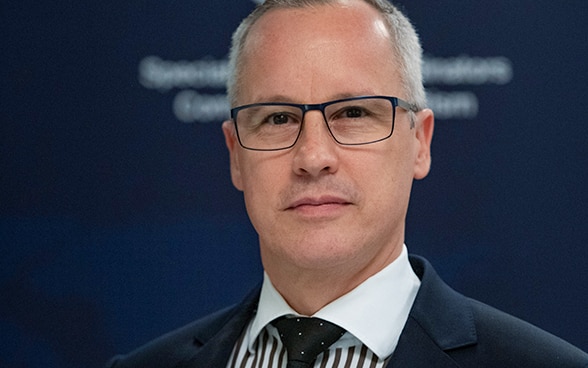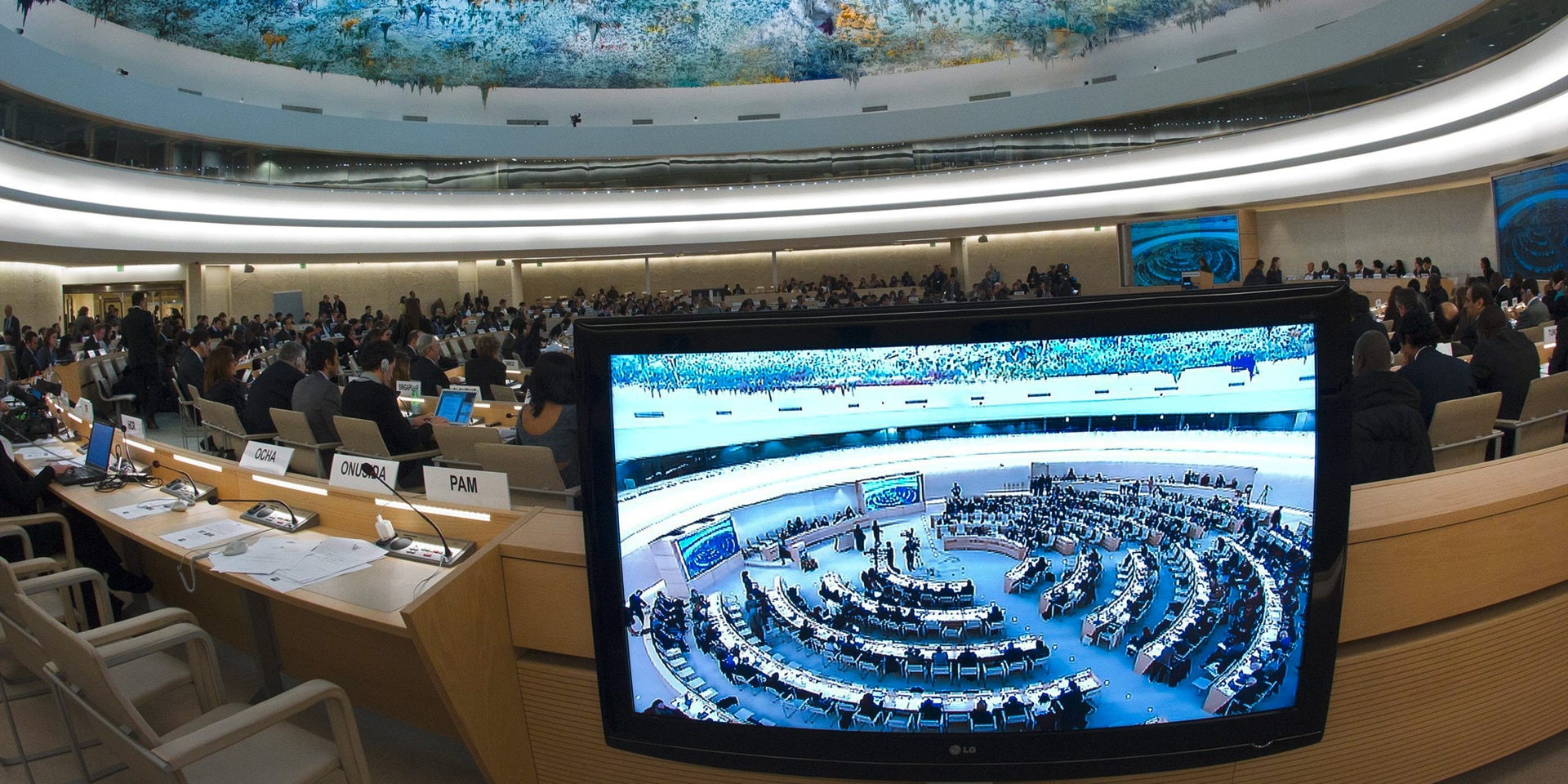"We must stay on track to achieve a world without capital punishment"
The World Congress against the Death Penalty starts today in Berlin and will run until 18 November. Switzerland plays a leading role in promoting the universal abolition of the death penalty and is cosponsoring the event. We took this opportunity to discuss Swiss efforts in this field with Ambassador Simon Geissbühler, head of the Peace and Human Rights Division, who has been leading the delegation at this year's Congress.

The World Congress against the Death Penalty is taking place in Berlin from 15 to 18 November 2022. More than 90 countries are represented. © ECPM

Why is Switzerland committed to a world without capital punishment?
Switzerland's commitment to the universal abolition of the death penalty is based on the fact that it violates a person's fundamental right to life. It also breaches the prohibition of torture and other cruel, inhuman or degrading treatment or punishment. The death penalty is not only a violation of the condemned person's dignity and rights, but also of the other people involved – particularly children and close family. Moreover, there is no scientific evidence to suggest that capital punishment acts as a greater deterrent than other harsh sentences. And last but not least, if the death penalty is applied and there has been a miscarriage of justice – it is irreversible. In fact, many innocent people have been wrongly executed. This is simply unacceptable in states governed by the rule of law.
What is the World Congress Against the Death Penalty?
It is the largest global event in this field and takes place every three years. This year's edition in Berlin will bring together around 1,000 representatives of government, international organisations, NGOs and parliamentary networks. The Congress is a platform that is both important in terms of exchange and launching initiatives as well as invaluable for governments to announce the concrete measures they are taking to advance the universal abolition of the death penalty.
How is Switzerland supporting the Congress?
Switzerland provides financial and political support, and has also taken part in several initiatives in different capital cities in recent months. These have been carried out jointly with Germany as host state of the Congress as well as France, Norway and the EU in order to encourage around 40 countries to make concrete commitments to the fight against the death penalty. Our hope is that some of these states that were targeted will use the opening ceremony at this year's Congress to make some welcome announcements.
What are Switzerland's priorities for the Congress?
Switzerland's principal aim is to reiterate its commitment to a world without capital punishment, which has been one of our foreign policy priorities for 40 years. Our country plays a key role in initiatives to abolish, suspend or limit the application of the death penalty that have been launched at the UN. Switzerland was closely involved in the negotiations on the resolution calling for a moratorium on the use of the death penalty, which was adopted by 126 countries last Friday at the UN General Assembly. We must stay on track in the current tense global climate, where there is a general tendency for the focus on the death penalty to take a back seat. By working towards a world without capital punishment, Switzerland promotes human rights and thereby contributes to lasting peace and security.
What is happening around the world in terms of universal abolition?
The overall trend is positive. Today, 144 countries are abolitionist in law or practice – this is more than two-thirds of the countries in the world – compared to only 111 countries 20 years ago. And actual executions and death sentences have decreased steadily over the past decades. These are welcome signs, especially at a time when human rights are coming under pressure in many parts of the world. At the same time, there have been some very worrying developments – such as in Myanmar, where executions were resumed this year after a moratorium of over 30 years.



